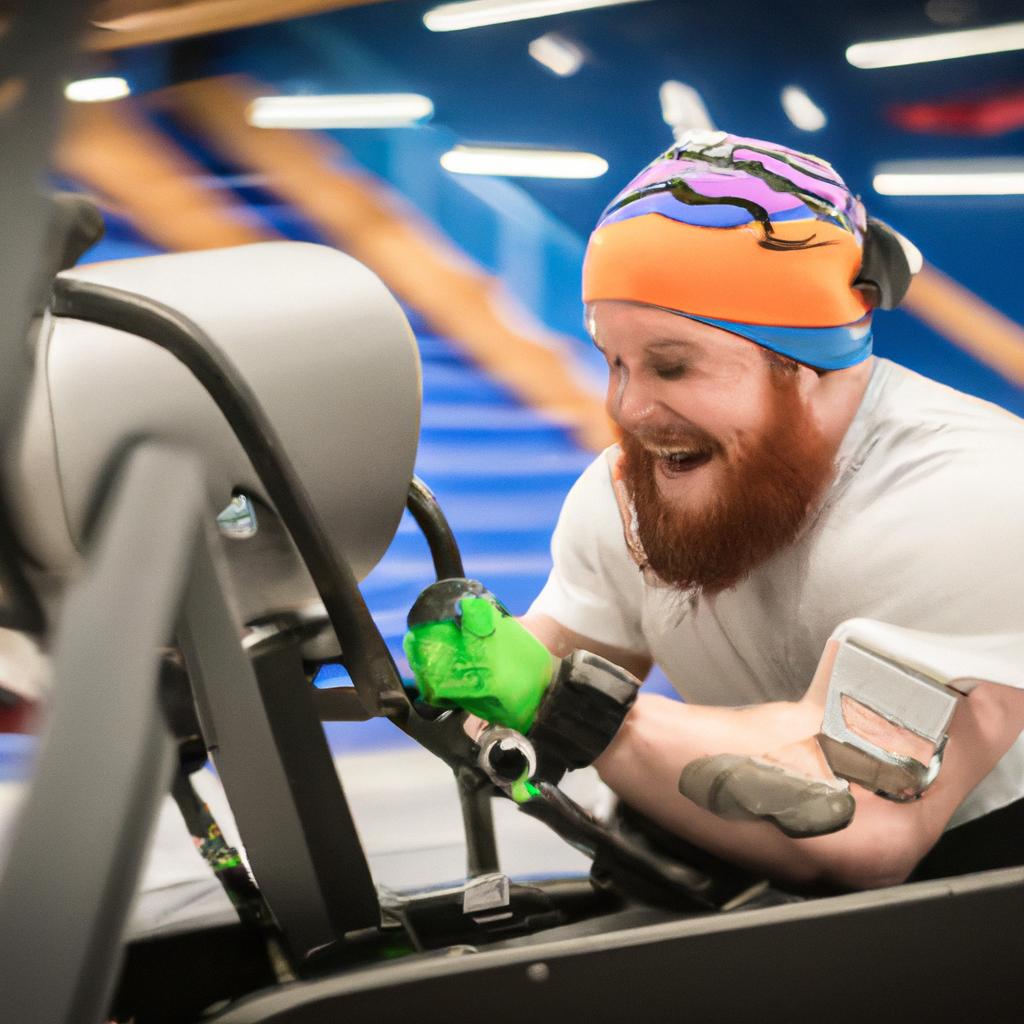**”The Transformative Power of Adaptive Sports: Personal Stories of Resilience and Triumph”**
# The Transformative Power of Adaptive Sports: Personal Stories of Resilience and Triumph
Adaptive sports have emerged as a beacon of hope and empowerment for individuals with disabilities, offering them the chance to participate in physical activities that were once deemed out of reach. These sports enable not only physical fitness but also foster a sense of community, belonging, and achievement among participants. Through personal stories of resilience and triumph, we see how adaptive sports can transform lives, instilling confidence and determination in those who take part.
## The Journey of Resilience
### Overcoming Limitations
For many participants, the journey into adaptive sports begins with the realization that their physical limitations do not define their potential. Take the story of Sarah, a young woman who became paralyzed from the waist down after a car accident. Initially filled with despair, Sarah found solace and strength in wheelchair basketball. The sport not only provided her with physical challenges but also a supportive community that encouraged her to push her limits. Her journey serves as a testament to the power of adaptive sports to help individuals reclaim their lives and redefine their self-worth.
### Building Confidence
Similarly, Michael, a veteran who lost his leg in combat, discovered adaptive cycling as a way to heal both physically and emotionally. Initially hesitant to join a group, he soon found camaraderie among fellow cyclists. The thrill of racing down a trail, the wind against his face, and the shared laughter with teammates helped him rebuild his confidence. These personal stories illustrate how adaptive sports create environments where individuals can flourish, transforming their perspectives on life and ability.
## Nutrition Tips
Proper nutrition plays a crucial role in enhancing athletic performance and recovery, particularly for adaptive athletes. Here are some essential nutrition tips:
1. **Balanced Diet**: Focus on a well-rounded diet rich in fruits, vegetables, whole grains, lean proteins, and healthy fats. This balance helps provide the necessary energy for training and daily activities.
2. **Hydration**: Staying hydrated is vital. Athletes should drink water before, during, and after exercise to maintain optimal performance levels. Consider electrolyte drinks for longer sessions.
3. **Pre-Workout Snacks**: Fuel up with light snacks such as bananas, yogurt, or energy bars about 30 minutes before exercising to boost energy without feeling heavy.
4. **Post-Workout Recovery**: After workouts, consume a combination of protein and carbohydrates to aid in muscle recovery. A protein shake with a banana or a turkey sandwich can be beneficial.
## Exercise Advice
Engaging in adaptive sports requires tailored exercise advice to ensure safety and maximize benefits. Here are some guidelines:
1. **Start Slow**: Individuals new to adaptive sports should ease into their routines, gradually increasing intensity and duration to avoid injury.
2. **Seek Professional Guidance**: Working with a certified coach or trainer who specializes in adaptive sports can provide personalized advice, ensuring exercises are suitable for the athlete’s specific needs.
3. **Focus on Strength Training**: Building strength is essential for all athletes. Incorporate resistance training that targets various muscle groups, especially the upper body for wheelchair athletes.
4. **Incorporate Flexibility Exercises**: Stretching and flexibility exercises help improve range of motion and prevent injuries. These should be a regular part of any training regimen.
## Health Benefits
The health benefits of participating in adaptive sports extend beyond physical fitness:
1. **Physical Health**: Regular exercise improves cardiovascular health, muscle strength, and endurance. It also reduces the risk of secondary health issues often associated with disabilities.
2. **Mental Well-Being**: The endorphins released during physical activity can alleviate symptoms of depression and anxiety. Many adaptive athletes report improved mood and mental clarity.
3. **Social Connections**: Engaging in team sports fosters a sense of belonging and support. Participants often form lasting friendships, combating feelings of isolation.
4. **Skill Development**: Adaptive sports often teach valuable life skills such as teamwork, leadership, and goal-setting, which can translate into other areas of life.
## Conclusion
The transformative power of adaptive sports is evident in the personal stories of individuals who have discovered resilience, confidence, and community through these activities. By embracing nutrition and exercise tailored to their needs, adaptive athletes not only enhance their physical health but also experience profound mental and emotional benefits. Ultimately, adaptive sports empower individuals to triumph over adversity, illustrating that limitations can be transcended with determination and support.















Post Comment